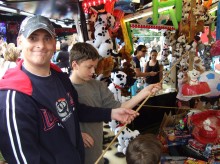 I had a number of pieces of content ready to go on the website, had even organised them in an order. But then I found this powerful piece on Stories. This is an extract from the book Telling our stories in ways that make us stronger by Barb Wingard and Jane Lester (Dulwich Centre Publications, 2001)
I had a number of pieces of content ready to go on the website, had even organised them in an order. But then I found this powerful piece on Stories. This is an extract from the book Telling our stories in ways that make us stronger by Barb Wingard and Jane Lester (Dulwich Centre Publications, 2001)
‘As Indigenous people of this country, we have faced so many losses due to past and present injustice. Grief’s presence has been with us for a long time. Now we are seeking ways of speaking about Grief that are consistent with our cultural ways of doing things.
We are remembering those who have died, we are honouring Indigenous spiritual ways, and we are finding ways of grieving that bring us together. We are telling our stories in ways that make us stronger.





